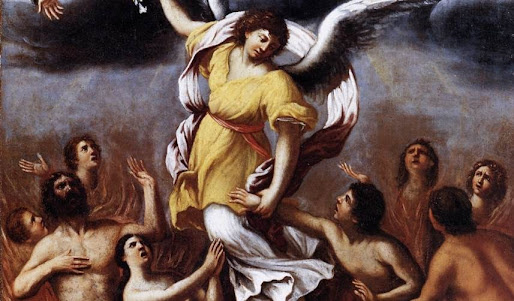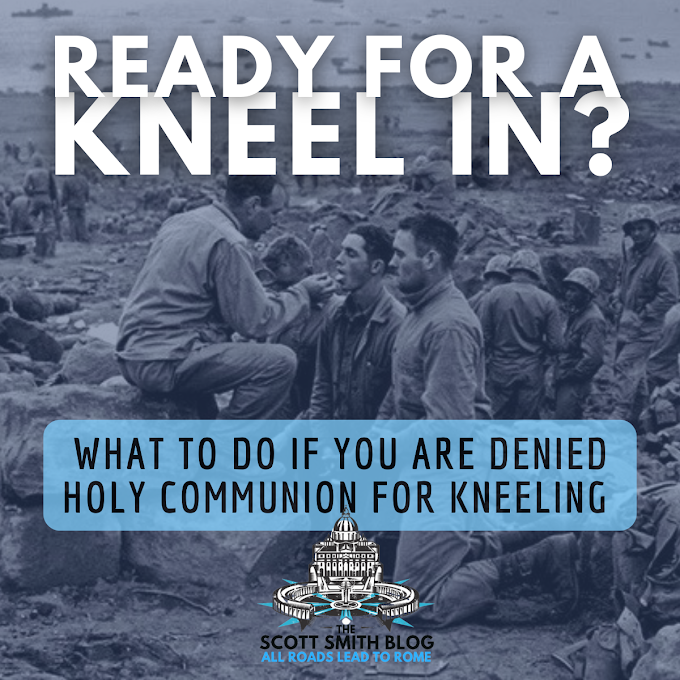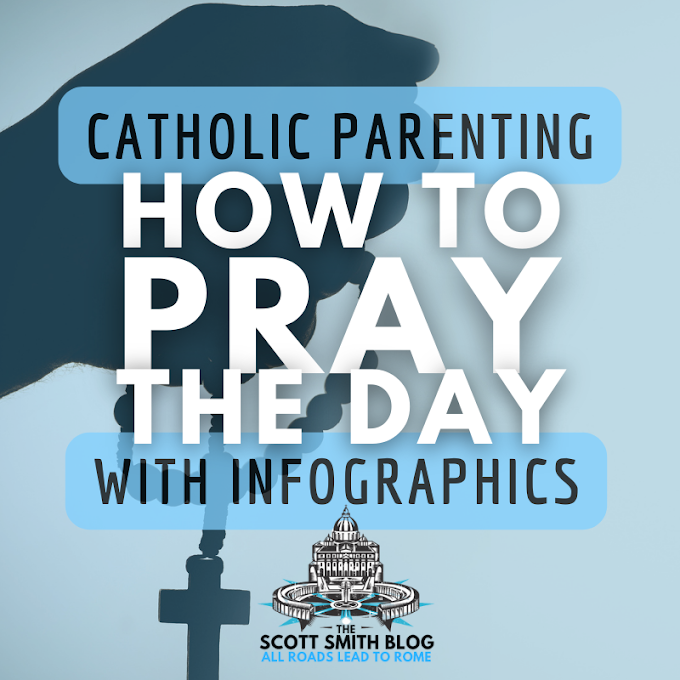Jonah was swallowed into the belly of a whale, right? He was spit onto the shore after three days, but he was alive the whole time.
Wasn’t he? … Wasn’t he?
Actually, no.
But this helps explain Jesus' mysterious prophecy about the “Sign of Jonah” ...
Also, did you know Jonah is also believed to be another, mysterious figure in the Bible? And if true, this would mean Jonah was the only Biblical figure resurrected ... TWICE!
Sign of Jonah - Table of Contents
What is the Meaning of Jesus' Mysterious "Sign of Jonah"?
When the crowds were increasing, he began to say, “This generation is an evil generation; it seeks a sign, but no sign shall be given to it except the sign of Jonah. For as Jonah became a sign to the men of Nin′eveh, so will the Son of man be to this generation. The queen of the South will arise at the judgment with the men of this generation and condemn them; for she came from the ends of the earth to hear the wisdom of Solomon, and behold, something greater than Solomon is here. The men of Nin′eveh will arise at the judgment with this generation and condemn it; for they repented at the preaching of Jonah, and behold, something greater than Jonah is here.
“Jonah became a sign to the men of Nineveh.” Check. “So will the Son of man be to this generation.” Check? Jesus is the Son of man, but Jesus is never swallowed by a whale (or a great fish). How, then, does Jesus provide the sign of Jonah?
What does Jesus Mean by the "Sign of Jonah"?
I called out of my distress to the Lord, And He answered me. I cried for help from the depth of Sheol; You heard my voice. You had cast me into the deep, Into the heart of the seas, And the current engulfed me. All Your breakers and billows passed over me. So I said, “I have been expelled from Your sight. Nevertheless, I will look again toward Your holy temple.” Water encompassed me to the point of death. The great deep engulfed me, weeds were wrapped around my head. I descended to the roots of the mountains. The earth with its bars was around me forever, But You have brought up my life from the pit, O Lord my God. While I was fainting away, I remembered the Lord, And my prayer came to You, Into Your holy temple. Those who regard vain idols Forsake their faithfulness, But I will sacrifice to You With the voice of thanksgiving. That which I have vowed I will pay. Salvation is from the Lord.
Was Jonah in the Belly of a Whale? Or Did Jonah Die?
Support for Jonah's Death from the Early Church Fathers
Now I apprehend that in the case of Jonah we have a fair proof of this divine power, when he comes forth from the fish’s belly uninjured in both his natures—his flesh and his soul. No doubt the bowels of the whale would have had abundant time during three days for consuming and digesting Jonah’s flesh, quite as effectually as a coffin, or a tomb, or the gradual decay of some quiet and concealed grave …
How Long Was Jonah Dead For? The "Sign of Jonah" & Three Days
Is the Sign of Jonah Resurrection After Three Days?
Jonah’s Near-Death Experience
I called out of my distress to the Lord, And He answered me. I cried for help from the depth of Sheol; You heard my voice. You had cast me into the deep, Into the heart of the seas, And the current engulfed me. All Your breakers and billows passed over me.
What is Sheol?
Sheol is the equivalent of purgatory, or at least its precursor. All the Biblical texts referring to Purgatory serve as proof-texts for the Catholic belief in Purgatory. There are a bunch more, all of which I have tried to assemble in this article, Biblical Proofs for Purgatory:
Sheol is a place of waiting, a place that ultimately leads to Heaven.
So I said, “I have been expelled from Your sight. Nevertheless, I will look again toward Your holy temple."[9]
Jonah describes being exiled or “expelled” from God’s presence. He is beyond the sight of God. Nevertheless, he remains faithful to God. He does not give in to despair. Jonah keeps his eyes fixed on Heaven. He yearns for God’s holy temple in Heaven.
The Holy Souls of Purgatory Yearning for Heaven, St. Margaret Mary & St. Faustina Kowalska
This accurately describes the disposition of the souls in purgatory, as well as Sheol. St. Margaret Mary was often beset by souls from purgatory seeking relief from their torments. St. Margaret Mary said of these suffering souls:
If only you knew with what great longing these holy souls yearn for relief from their suffering. Ingratitude has never entered Heaven.
St. Faustina Kowalska provided a similar observation of the souls in purgatory, tantamount to a near-death experience.
St. Faustina was taken to “a misty place full of fire” by her guardian angel:[10]
I saw my guardian angel, who ordered me to follow him. In a moment I was in a misty place full of fire in which there was a great crowd of suffering souls. They were praying fervently, but to no avail, for themselves; only we can come to their aid. The flames, which were burning them, did not touch me at all. My guardian angel did not leave me for an instant. I asked these souls what their greatest suffering was. They answered me in one voice that their greatest torment was longing for God.
St. Faustina reveals here that the greatest torment of the souls in purgatory is not burning in the flames, but their “longing for God.”
Sheol, Like a Prison
Let’s return to Jonah’s prayer to God as he descends to the underworld. As you read, you may begin to feel claustrophobic. Jonah is calling to God from a place like a prison:[11]
Water encompassed me to the point of death. The great deep engulfed me, weeds were wrapped around my head. I descended to the roots of the mountains. The earth with its bars was around me forever ...
The water “encompassed” Jonah. The deep “engulfed” him. Weeds encircled his body and “wrapped around his head,” choking him. Finally, the “bars” of the earth closed in on him “forever.”
 |
| Jonah and the Whale by Dan Phyillaier |
Jonah's NDE, A Life Forever Changed
Another consistent characteristic of NDEs is the positive change it causes in the survivor’s life. This was consistently documented in the medical studies reviewed earlier.
After Jonah’s descent into the prison of the depths, he suddenly demonstrates the gratitude that St. Margaret Mary described above, as well as the longing and yearning for the sanctuary of God’s holy temple:[12]
But You have brought up my life from the pit, O Lord my God. While I was fainting away, I remembered the Lord, And my prayer came to You, Into Your holy temple. Those who regard vain idols forsake their faithfulness, but I will sacrifice to You with the voice of thanksgiving. That which I have vowed I will pay. Salvation is from the Lord.
Jonah ends his prayer in the “voice of thanksgiving.” He will repay God’s faithfulness to him with his own faithfulness.
What Other Biblical Figure is Identified as Jonah?
As I promised above, Jonah is also believed to be another, mysterious figure in the Bible. And if true, this would mean Jonah was the only Biblical figure resurrected ... TWICE!
Who was Jonah? Where did he come from?
The Book of Jonah does not tell us much about Jonah’s origins. Jonah is a mysterious figure. His entire predicament seems ridiculous at first glance. Why does God call him to preach repentance to Nineveh? And why does Jonah then attempt to flee across the world, rather than accept this mission?
It’s all very mysterious. Unless … you know who Jonah is.
Jonah is described as “the son of Amit′tai.”[13] Outside of the Book of Jonah, the Bible only mentions Jonah once more. At 2 Kings 14:25, it is stated that the restoration of the borders of Israel by Jeroboam II against foreign invaders fulfilled the “word of the Lord the God of Israel, which he spoke by his servant Jonah the son of Amathi, the prophet, who was of Geth, which is in Opher.”
This answers part of the mystery. Jonah had some notoriety as a prophet. Perhaps word of him had even spread to Nineveh.
There’s more. There is an ancient tradition that Jonah is mentioned again in the Bible, though not by name. Many ancient commentators, both Christian and Jewish, relate that Jonah is actually ...
The son of the widow of Zarephath. The son of the widow of Zarephath (1 Kings 17:17-23) was resurrected by Elijah.
Isn’t that incredible? This makes Jonah the only figure in the entire Bible to have been resurrected twice.
This ancient tradition is attested to by St. Jerome[14] and Pseudo-Epiphanius[15], as well as in the Midrash, the collected writings and Biblical commentary of the ancient Jewish rabbis.[16] Jonah is also frequently depicted in ancient artwork as a symbol of resurrection.[17]
What Happened to Jonah After Nineveh? Did the Line of Prophets go from Elijah to Elisha to Jonah? Was Jonah Assumed?
The Midrash provides more details that help us make sense of the mysterious figure of Jonah. After being resurrected by Elijah, Jonah followed in the line of prophets of Israel, eventually succeeding Elijah and Elisha. After Elijah was assumed into heaven on a fiery chariot, Elisha took on Elijah’s mantle of prophesy and Jonah became Elisha’s disciple.[18]
There’s still more. The ancient Jews contributed, not just to the beginning of his story, but to the end, as well.
 |
| The Assumption of Elijah into Heaven |
Like Elijah, the Midrash describes Jonah as one of the people who did not die, but were taken up or assumed bodily into Paradise. The Rabbis relate that Jonah, being completely righteous, would enter the Garden of Eden while still alive.[19]
Jonah ascending into heaven like Elijah adds yet another component to the “sign of Jonah”. Like Jonah, Jesus will die for three days, resurrect, and later ascend to heaven.
What is the "Sign of Jonah"? Did Jonah have a Near-Death Experience? Footnotes
[1]
Jon. 2:2–9.
[2]
Pitre, Brant, The Case for Jesus: The Biblical and Historical
Evidence for Christ, Image Books, New York, Chapter 12: “The Resurrection,”
150-152: The phrases belly of Sheol and the Pit are Old Testament terms that
refer to the realm of the dead. (See Job 7:9, 33:18, Psalm 40:2, 49:14-15,
89:48).
[3-1] See
Robert Chisholm, Handbook on the Prophets (Grand Rapids, MI: Baker
Academic, 2002), 411: “In ancient Near Eastern literature, the trip to the
underworld land of the dead was viewed as a three-day journey.” See also George
M. Landes, “The ‘Three Days and Three Nights’ Motif in Jonah 2:1,” Journal
of Biblical Literature 86 (1967): 246-50.
[3-2] Tertullian, Ante-Nicene Fathers, Vol III (p. 992): Chapter 32. “Even Unburied Bodies Will Be Raised Again. Whatever Befalls Them God Will Restore Them Again. Jonah’s Case Quoted in Illustration of God’s Power.”
[4]
Jesus uses the same command to raise from the dead the Widow of Nain’s Son at
Luke 7:14–15: “And he came and touched the bier, and the bearers stood still.
And he said, ‘Young man, I say to you, arise.’ And the dead man sat up,
and began to speak. And he gave him to his mother.”
[5]
Jon. 2:2–9.
[6] Johnston,
Shades of Sheol, 74–75.
[7]
Martin A. Shields, “Death,” ed. John D. Barry et al., The Lexham Bible
Dictionary (Bellingham, WA: Lexham Press, 2016).
[8]
Ibid., Johnston.
[9]
Jon. 2:4.
[10] St.
Maria Faustina Kowalska, Diary of Saint Maria Faustina Kowalska, 20.
[11]
Jon 2:5.
[12] Jon. 2:6–9.
[13] Jonah
1:1.
[14] Commentaries,
in Jonas, Prol., P.L., XXV, 118.
[15] De
Vitis Prophetarum, xvi, P.L., XLIII, 407. In Vitae Prophetarum, one
finds a mention of Jonah’s
family: Jonah’s mother
is a widow, and having returned from Nineveh, he takes her with him and flees
to Tyre, in order to avoid being scorned as a false prophet. There he dies, but
Elijah resurrects him, “because he wanted to show him that he cannot escape
God”.
[16] Yer.
Suk. v. 1; Gen. R. xcviii. 11; Yalḳ., Jonah, 550; Abravanel's commentary to
Jonah; Pirḳe
R. El. Xxxiii;
[17] Jonah
is frequently used as a symbol of resurrection in ancient artwork. cf. Bezalel
Narkiss, “The Sign of Jonah,” Vol. 18, No. 1, Papers Related to Objects in
the Exhibition “Age of Spirituality”, The Metropolitan Museum of Art, The
University of Chicago Press, November 1977-February 1978 (1979), pp. 63-76 (15
pages).
[18] 2
Kings 9.; Ḳimḥhi, ad
loc., and Ẓemaḥ Dawid
[19] Midrash
Tehilim 26:7; Jonah is given at Midrash Tehillim 26:7 a highly laudatory
characteristic as “a completely righteous man (גמור
צדיק), who was
purified by a fish who swallowed him and by deep waters, but did not die
<…> ascending to Paradise alive with honor.” This statement that Jonah
“did not die” may have led to some confusion about Jonah not dying in the belly
of the fish. The meaning of “did not die” here is not in reference to the fish
but his believed assumption into heaven, i.e. the next line “ascending to
Paradise alive with honor.” This ascension adds another corresponding element
to Jesus’ reference to the Sign of Jonah.


















1 Comments